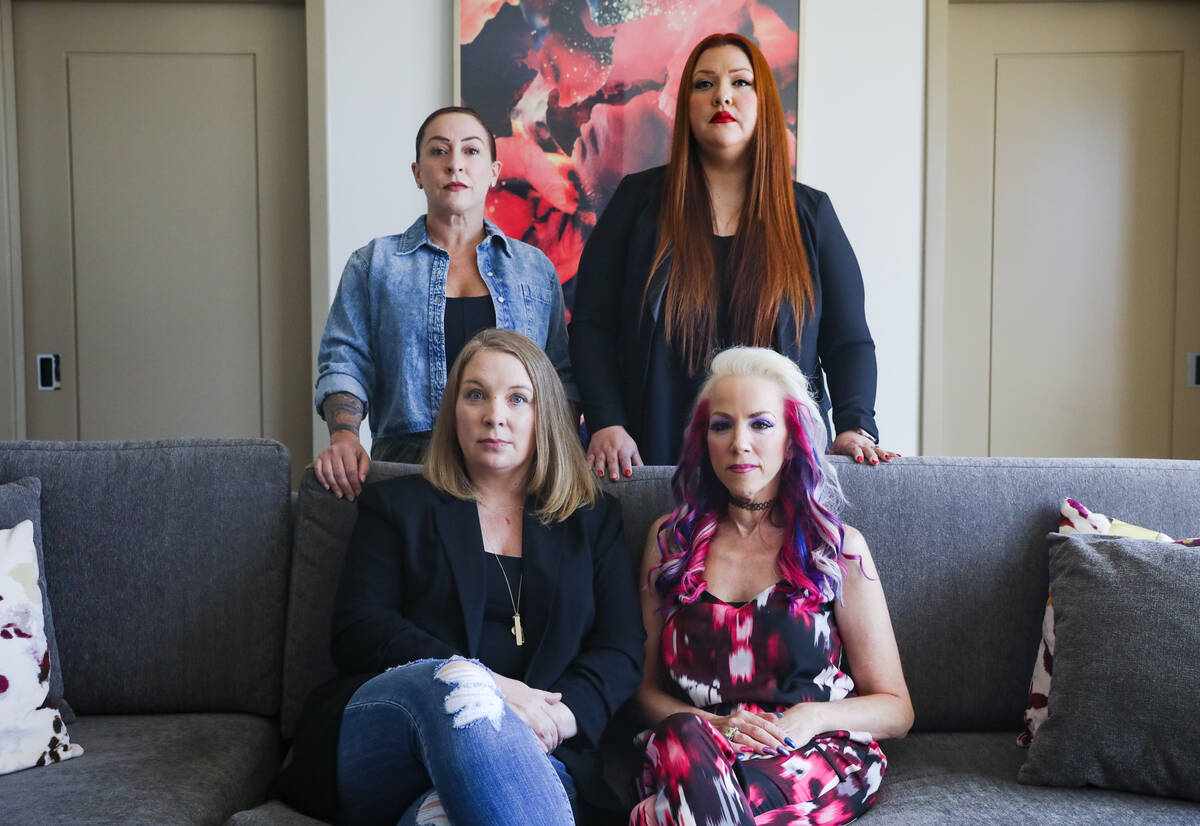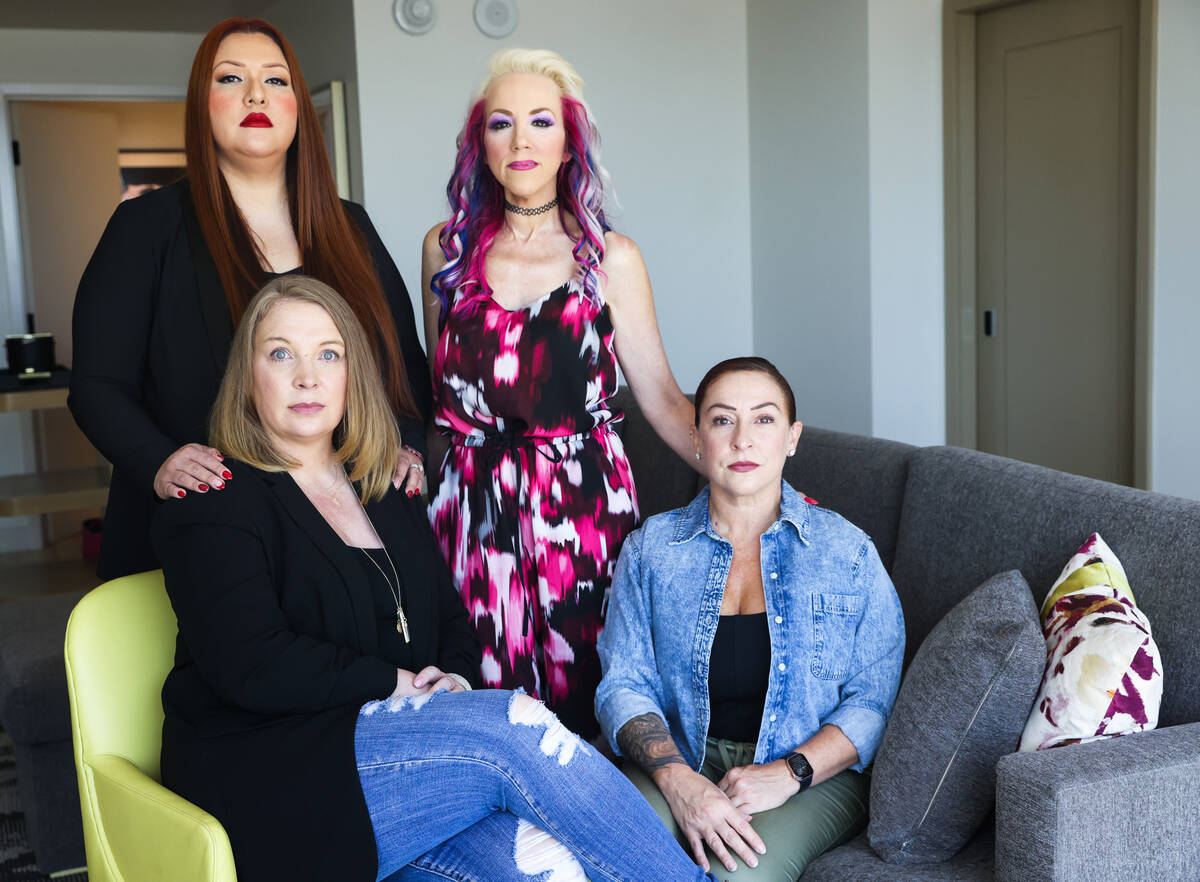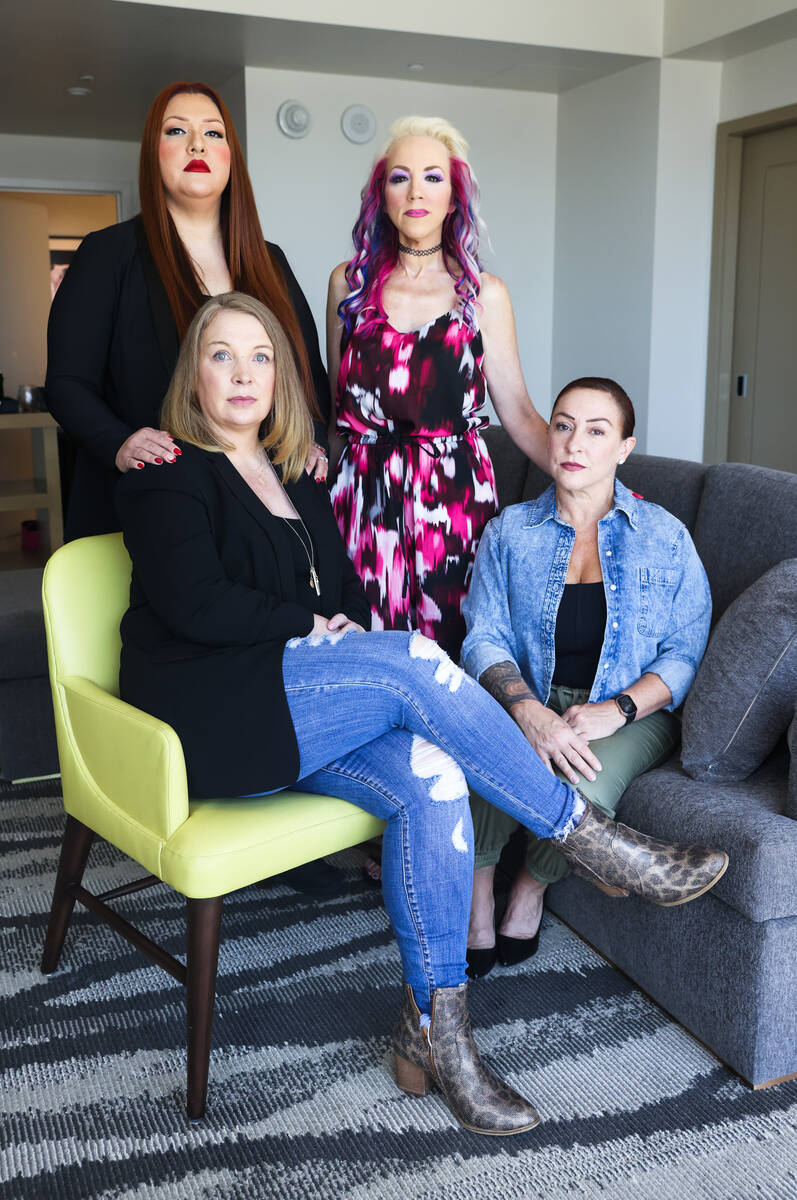‘I had no control’: Survivors of sex trafficking now lead fight
Jessica Kay was sitting in a violence against women class at the University of Southern California when she had an epiphany — that she too had been the victim of sex trafficking.
Kay took the class while pursuing what would eventually be her master’s degree in social work. Years earlier, Kay had been sex trafficked in Las Vegas for 18 months by a man who she believed was her boyfriend.
It wasn’t until the class at USC that Kay realized she had been a victim.
“A lot of victims don’t recognize themselves as victims,” she said. “That is something that we see often when doing this work.”
During those 18 months when she was sex trafficked, Kay had to hit a daily quota of $2,500. She met her trafficker while she was in a domestically violent relationship that caused her to lose her car and home.
“I was so vulnerable and whatever I needed he provided but in my mind he was my boyfriend and I had no idea what he had in store for me,” Kay said.
Now a consultant for the trafficking victim support organization UNITAS, a member of the Nevada Policy Council on Human Trafficking and a clinical social worker, Kay has heard many similar stories from fellow survivors.
Like Kay, three other survivors have used their experiences to help others who have been victimized rebuild their lives. Here are their stories.
‘My eyes finally opened’
Bekah Charleston was trafficked all over the country, including in Las Vegas, for 10 years starting when she was 17 years old. Charleston met her trafficker when she ran away from her Dallas home.
Similarly to Kay’s experience, it wasn’t until a fellow survivor asked Charlston what her trafficker would have done if she had ever said no that Charleston realized what she had lived through.
Charleston said her trafficker controlled everything about her life: the color of her hair, how she worked out, the food she ate, how she talked and what she wore.
“That’s when my eyes finally opened because that whole time I really blamed myself for what I had been through,” Charleston said. “I thought that I had made bad choices and that I got what I deserved.”
She escaped her trafficker after an arrest and 13 months in federal prison.
“I believed him when he told me he would kill me if I ever did,” Charleston said. “I kept my mouth shut and took a charge for him.”
It took her a few years, but Charleston was able to get her life back on track and now travels the country speaking about her experience and training different organizations to be survivor informed.
‘I had no control’
Annie Lobert is the CEO of Hookers For Jesus, a nonprofit organization that offers a holistic healing program as well as advocacy, housing and counseling services for survivors of sex trafficking. Lobert, a survivor herself of sex trafficking, worked as a prostitute in Minnesota and then in Las Vegas as a teenager.
“I started it 19 years ago because of my own journey,” Lobert said of her nonprofit.
The nonprofit’s website includes several testimonials from people whose lives were changed by entering the program.
“Upon my first meeting with a few of the ladies I was accepted and welcomed as if they already knew me and loved me,” one person wrote. “They made me feel like I was important and worthy, no matter how I looked at the time or where I had been.”
Lobert recalled how she ended up being sex trafficked. She said that after coming to Las Vegas by herself a couple times, she brought the man she thought was her boyfriend. The first night he was in town he brutally beat Lobert and took all her money.
The man threatened to kill Lobert if she tried to leave or didn’t pay him. He broke her nose, popped her ear drum and hit her, leaving both her eyes were swollen shut. She described her face as being unrecognizable.
For the next few weeks, Lobert was stuck in a hotel not able to leave and without her ID, beeper and phone, which the man had taken.
“I had no control of my own autonomy,” Lobert said.
‘We know the language’
Samantha Summers-Rivas works with All Things Possible Ministries, which supports women and children who have been sexually exploited or trafficked. She worked at an all-nude strip club in California from 18 until she was 21.
There are misconceptions, Summers-Rivas said, about sex work, including the myth that stripping is a lucrative profession for everyone. Some nights she would go home with $25.
“What does that do to your self-esteem and your self-worth and your self-value? It starts depreciating it even more,” she said.
Summers-Rivas said there is value in having people such as herself, Kay, Charleston and Lobert working with fellow survivors because they have seen it all through their own experiences.
“They can really be themselves with us and we know the language, we know what it looks like. There’s a familiarity there so the walls are automatically already down,” she said. “They know that they’re not going to be judged, that we’re not going to be shocked at anything that they say.”
Contact David Wilson at dwilson@reviewjournal.com. Follow @davidwilson_RJ on Twitter.
























